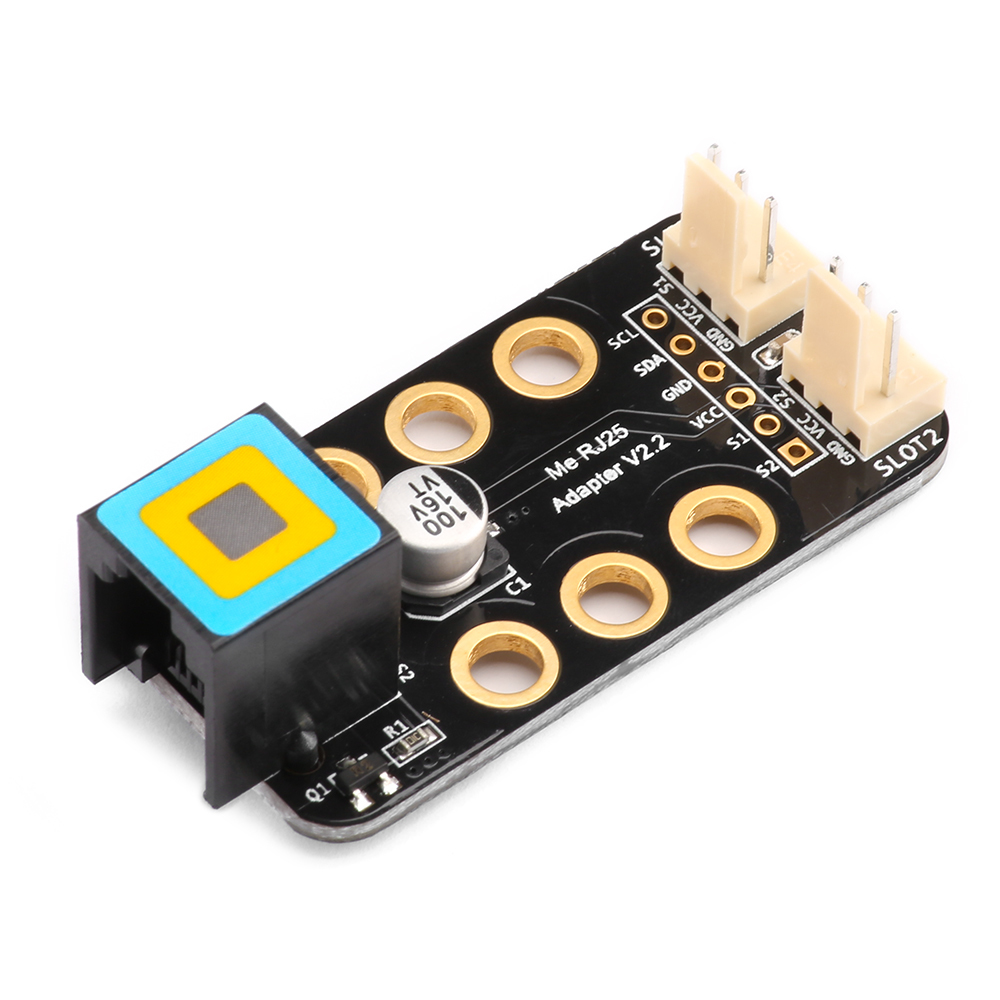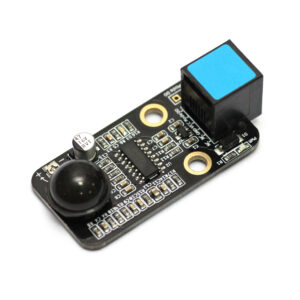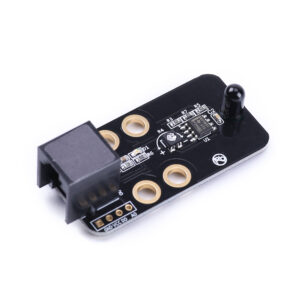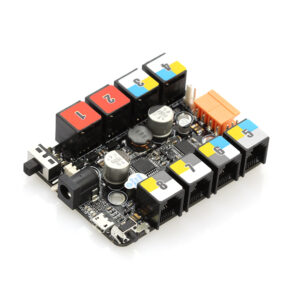Overview
The Me RJ25 Adapter module converts the standard RJ25 port into six pins (VCC, GND, S1, S2, SDA, and SCL) so that they can be easily drawn out from MakeBlock port in compatible with electronic modules from other manufacturers, such as temperature sensor and servo module. This module should be connected to the ports with yellow, blue, or black ID on Makeblock Orion.
Technical specifications
● Operating voltage: 5V DC
● Maximum current: 3A
● Space between pins: 2.54 mm
● Module size: 51 x 24 x 18 mm (L x W x H)
Functional characteristics
● Red LED is power indicator
● Provide I²C port and two digital/analog ports
● Can connect to electronic modules of other manufacturers
● White area of module is the reference area to contact metal beams
● Two 3-pin anti-reverse base
● Support mBlock GUI programming, and applicable to users of all ages
● Adopt RJ25 port for easy connection
Pin definition
The port of RJ25 Adapter module has 6 pins, and their functions are as follows:
Wiring mode
Guide to programming
● Arduino programming
If you use Arduino to write a program, the library Makeblock-Library-master should be invoked to control the Me RJ25 Adapter.
This program serves to read the state of Limit Switch and output results to the serial monitor in Arduino IDE through Arduino programming.
The function of the code segment is: to read the state of Limit Switch and output results to the serial monitor. Upload the code segment to Makeblock Orion, click the serial monitor and you will see the running result as follows:
● mBlock programming
Me RJ25 Adapter supports the mBlock programming environment and its instructions are introduced as follows:
Principle analysis
The Me RJ25 Adapter module lead out 6 IO ports of Makeblock Orion, they are SDA, SCL, GND, VCC, S1, and S2 respectively. S1 and S2 can be used as input/output of digital/analog signal; SDA is I²C data bus, SCL is I²C clock bus, and they can be connected to sensors which support I²C bus. For example, the Me Temperature Sensor-Waterproof module supporting I²C protocol can be connected to the I²C bus in series to construct a network for temperature measurement.













